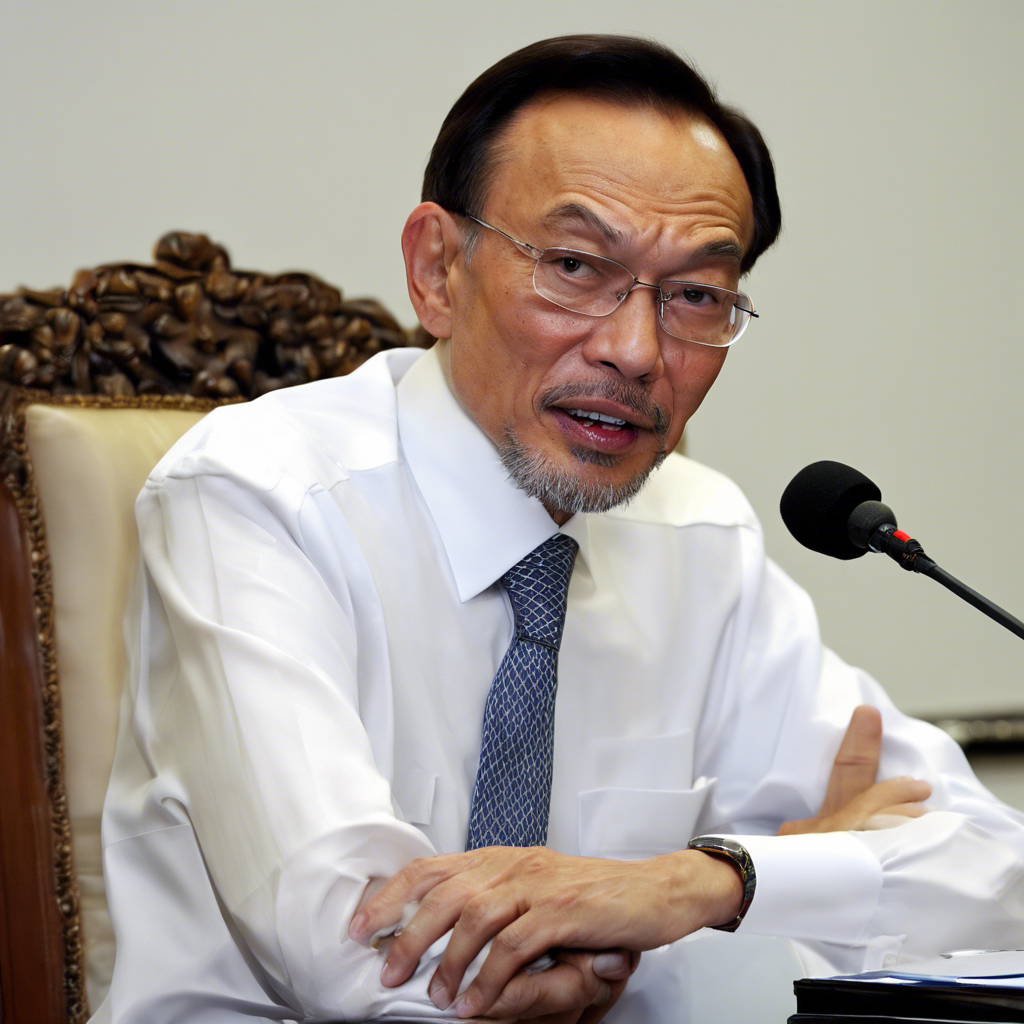Malaysian Prime Minister Anwar Ibrahim Reshuffles Cabinet to Rebuild Trust and Address Economic Concerns

Anwar Ibrahim appoints chief of largest state pension fund as second finance minister in a bid to regain public confidence and prioritize economic recovery.
Malaysian Prime Minister Anwar Ibrahim has announced a major cabinet reshuffle aimed at rebuilding trust and addressing concerns over the economy. The move comes after a dip in public opinion polls and growing worries about inflation, sluggish reforms, and the pace of economic recovery. Anwar emphasized that the economy, health, and education would be the government’s top priorities. The appointment of the chief executive of the Employees’ Provident Fund (EPF) as the second finance minister highlights Anwar’s commitment to strengthening the finance ministry and focusing on economic stability.
Reshuffling the Cabinet to Rebuild Trust:
Anwar Ibrahim’s cabinet reshuffle aims to address public concerns and restore confidence in his government. The inclusion of a strong professional team in the finance ministry is seen as a crucial step towards ensuring economic stability. By appointing Amir Hamzah Azizan, the CEO of EPF, as the second finance minister, Anwar aims to dispel the perception that the ministry has been neglected due to his other responsibilities as prime minister.
Focusing on Economic Recovery:
Malaysia’s economic growth has experienced a significant slowdown this year, dropping from 8.7% in 2022. The decline in exports and the underperformance of the ringgit have raised concerns over rising consumer costs. Anwar Ibrahim acknowledges the urgency of addressing these economic challenges and has made it a priority for his government. The reshuffle reflects his commitment to putting the economy back on track and ensuring the necessary reforms are implemented.
Expanding the Cabinet and Allocating Portfolios:
The recent reshuffle has expanded the cabinet from 28 to 31 members. This move allows for a more focused allocation of portfolios and better management of key areas. The energy transition and digital portfolios have been separated into distinct ministries, reflecting the government’s emphasis on these critical sectors. The reshuffle also saw the appointment of Mohamad Hasan, a deputy president of the United Malay National Organisation (UMNO), as the new foreign minister, replacing the previous defense minister.
Public Opinion and the Need for Change:
Anwar Ibrahim’s approval rating has seen a decline in recent months, with concerns over the economy being a significant factor. Independent polling group Merdeka Center reported a drop in Anwar’s approval rating from 68% in December last year to 50% in the latest survey. The government’s approval rating also dipped from 54% to 41%. The cabinet reshuffle is seen as a necessary step to address these concerns and regain public confidence.
Key Appointments and Changes:
The reshuffle saw several key appointments and changes within the cabinet. Fadillah Yusof, previously a deputy prime minister, has been assigned the newly-created energy transition and public utilities portfolio. Former finance minister Johari Abdul Ghani has taken over as the commodities minister and will lead the government’s task force on the 1MDB scandal. Dzulkefly Ahmad has returned as the health minister amid a reported rise in COVID-19 infections. Human Resources Minister V. Sivakumar was replaced by Steven Sim, a former deputy finance minister.
Conclusion:
Prime Minister Anwar Ibrahim’s cabinet reshuffle aims to address concerns over the economy and rebuild public trust. By appointing a strong professional team, including the CEO of EPF as the second finance minister, Anwar demonstrates his commitment to economic stability. The expansion of the cabinet and the allocation of portfolios reflect the government’s focus on key sectors and the need for efficient management. The reshuffle is a crucial step towards addressing public concerns and achieving the promised reforms. As Malaysia navigates through economic challenges, the success of these changes will determine the government’s ability to regain public confidence and steer the country towards a path of recovery.

